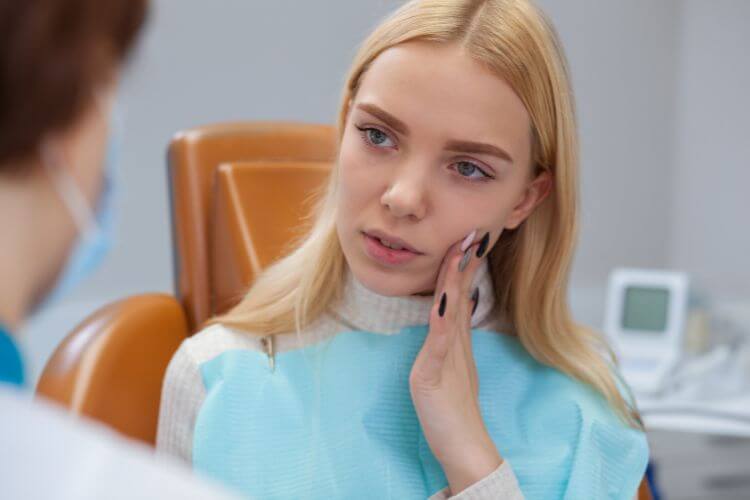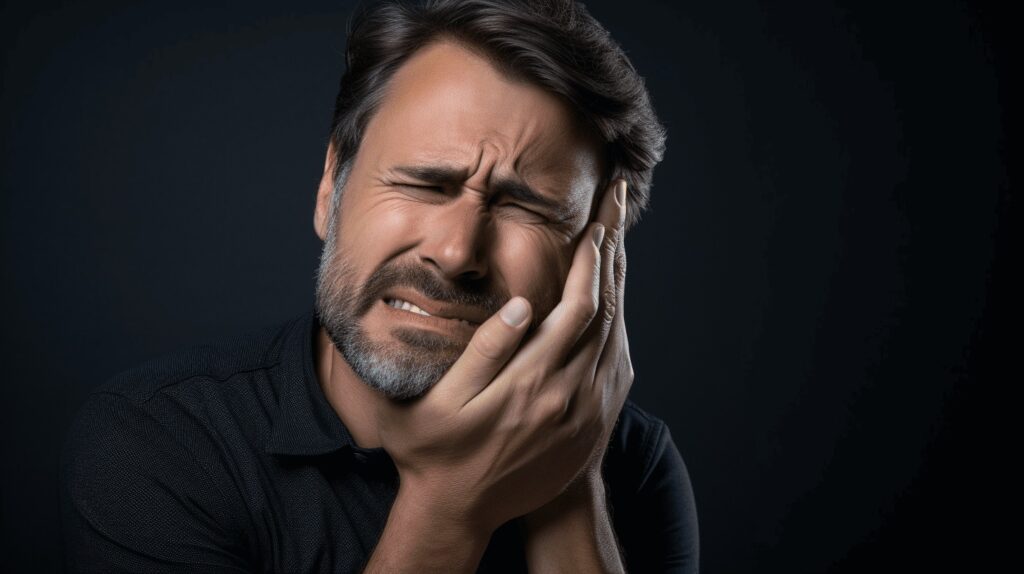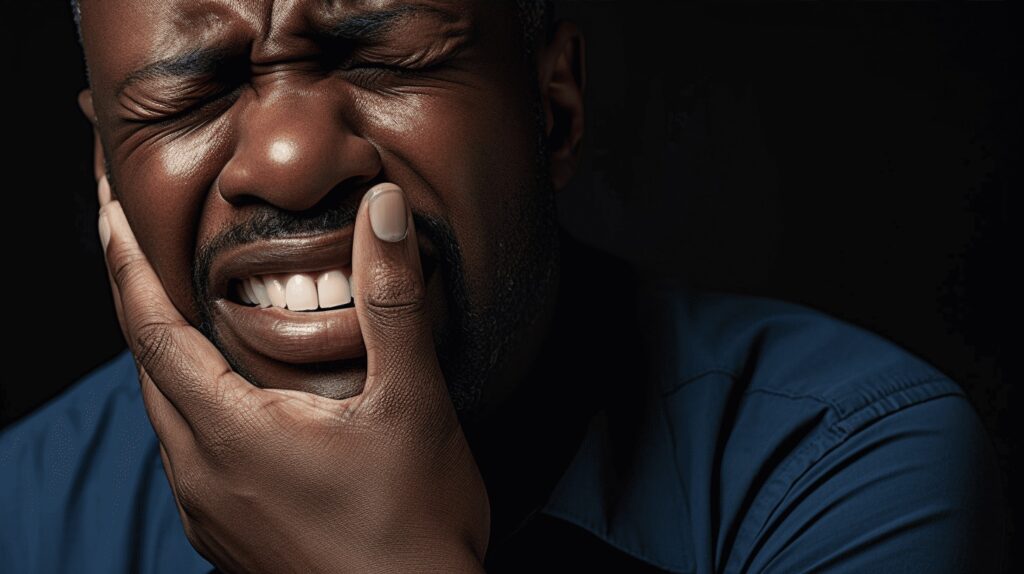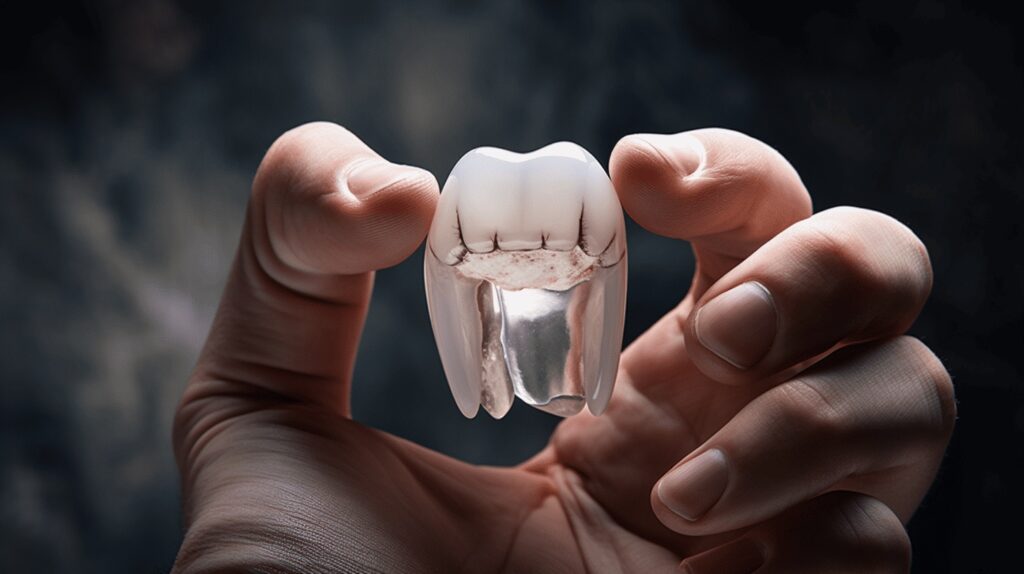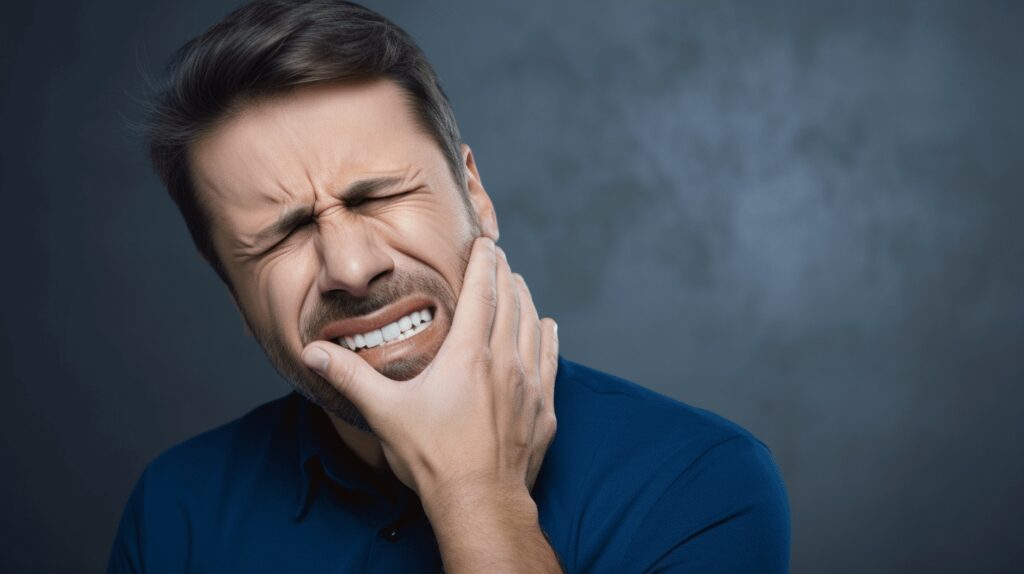We’ve all had that sinking feeling: an unexpected toothache hits, it’s late at night, and your regular dentist’s office is closed. Or perhaps your child experiences a tooth knock-out during a weekend sports game. In situations like these, access to emergency dental care can feel like a lifeline. 🚑
Just imagine the relief of finding an after-hours dentist who can alleviate your pain or initiate urgent treatment right when you need it the most.
This guide is here to help you navigate such terrain. We’ll discuss the necessity of emergency dental care, how to find it, and crucial preventative measures to avoid untimely dental emergencies.
💡 Let’s dive in, shall we?
Table of Contents
The Need for Emergency Dental Care
We’ve all experienced a toothache, right? But have you ever thought about the severity of these seemingly small issues and their potential for landing someone in an emergency room? Well, sit tight because we’re about to dive deep into the world of emergency dental care and why it has become indispensable in today’s society.
High Number of ED Visits
Let’s start with some jaw-dropping facts! 🤯 Annually, there are approximately 2 million visits made to hospital emergency departments (EDs) in the U.S. for dental pain alone. In 2018, over 2 million dental-related ED visits happened, breaking down to an average of 615.5 visits per 100,000 population. This surge isn’t only because of general dental issues but more specifically the ones leading to urgent care. These statistics highlight one thing loud and clear – a significant portion of the population is dealing with dental emergencies, and we need to address this issue.
Impact of Dental Issues on Productivity
Ready for some more staggering information? Unplanned dental care, mainly due to emergencies, results in the loss of about 34 million school hours annually and over $45 billion in productivity loss across the U.S. Imagine the economic benefit that could be fueled by simply avoiding these unexpected dental emergencies! We realize that there’s so much more at stake here than just a toothache. So every visit to the dentist you’ve been putting off? It’s time to rethink those decisions. 😔
Untreated Cavities and Dental Problems
The neglect towards regular dental visits is also a contributing factor to this problem. About 40% of adults—especially those with low income and no private health insurance—have untreated cavities. This neglect is an alarming concern, and what’s more troubling is the butterfly effect it creates! 1.7% of adult emergency dental visits and 0.6% of children’s visits turn into an ER visit within 15 days for a dental condition.
With the revelation of these facts, one thing becomes abundantly clear. There is an urgent need to consider emergency dental care as an essential part of overall healthcare, not just to maintain a sparkling smile 😁, but also to ensure overall better health for everyone.
Access to Emergency Dental Care
Emergency dental care is an area often overlooked when discussing healthcare accessibility. However, it plays a vital role in maintaining the overall wellbeing of our population. A sudden, throbbing toothache or a broken tooth can cost us not only our peace of mind but also our hard-earned savings. This article focuses on the various facets of accessing emergency dental care, and we’ve taken a dive into some intriguing statistics that shed light on this issue.
Dental Deserts
Dental deserts are areas with limited access to dental care. In 2021, we found that around 6 million Floridians were living in such deserts, leading to nearly 120,000 of them turning up at hospital emergency rooms for dental issues. This startling statistic brings to light the severity of the problem. And it’s not just about the logistics of finding a dental office.
- The availability of dentists in the area
- The ability to afford a visit to a dentist
- Dental insurance coverage
- The awareness of the importance of oral health
These are some crucial factors that contribute to the existence of dental deserts.
Regional Observations
We weren’t just interested in isolated cases, so we cast our net wider to include regional observations of emergency dental care. Our survey led us to the North East and Cumbria, where we observed the period prevalence of urgent and emergency dental care attendances over a six-year span. The data paints a disturbing picture—that of a dire need for accessible and affordable emergency dental services in several regions.
Tooth Decay in Children
We often rummage through our childhood memories with a smile, reminiscing over innocence and days of untroubled happiness. But for many children, especially in Texas, this may not be the case.
“More than 67% of Texas 3rd graders have experienced tooth decay, with one-third of children ages 2 to 8 exhibiting tooth decay in their baby teeth.”
This alarming statistic unveiled the bitter truth about the state of children’s oral health, highlighting how crucial it is to enhance the accessibility and affordability of emergency dental care for our young ones.
Emergency dental care might not seem as critical as other health issues, until one is hit with excruciating tooth pain in the dead of the night. It’s high time we address this issue and work towards improving the accessibility and affordability of emergency dental services for everyone. After all, oral health is a key indicator of our overall health. Urban or rural, rich or poor, young or old—it’s a right, not a privilege.
Preventative Measures and Recommendations
While access to quality emergency dental care is crucial, we believe the real power lies in preventative strategies. Right from brushing and flossing daily, to maintaining your regular dental check-ups, there’s no substitute for taking good care of your oral health. But even with the best laid plans, dental emergencies can still occur.
Emergency Hotline and Advice
When a dental crisis rears its ugly head in the middle of the night or during holidays, wouldn’t it be comforting to know there’s someone you could reach out to for immediate advice? That’s exactly our rationale behind setting up a dental emergency hotline. Staffed by experienced dental practitioners, this hotline provides around-the-clock advice to help manage your symptoms until you can see an emergency dentist.
The service is a boon for those living in ‘dental deserts’ – regions where dental care access is limited. It serves as an immediate link for expert counsel, playing a pivotal role in enhancing regional dental care.
Importance of Regular Exams and Good Oral Hygiene
Regular dental exams can help prevent the majority of dental emergencies. A simple check-up can detect problems such as cavities or gum disease in the early stages, helping you avoid the pain and discomfort of advanced dental issues. Plus, your dentist’s personalized oral hygiene advice is often more beneficial than any generic guidelines found online.
Here are some key reasons why regular dental exams are important:
- They help detect dental problems early, before they become serious.
- Your dentist will carry out oral cancer screenings at regular check-ups, potentially saving your life.
- Regular visits to your dentist build a rapport, making emergency situations less stressful.
On the other hand, maintaining good oral hygiene is all about consistent habits. Let’s look at some essentials:
- Brushing twice a day, and flossing at least once.
- Using fluoride toothpaste, which is proven to fight cavities.
- Avoiding sugary food and drinks, especially shortly before bed.
A robust dental hygiene routine is fundamental, not only for pristine teeth but also to preserve your overall health.
In conclusion, navigating through an unforeseen dental emergency can be less daunting when we’re already taking preventative measures. Staying proactive about our oral health can often mean the difference between a quick consultation and an emergency dental surgery. Is there anything more reassuring than knowing you’re doing everything in your power to maintain a bright, healthy smile?
Frequently Asked Questions
- What is emergency dental care? Emergency dental care refers to the immediate treatment of dental issues that require urgent attention, such as severe tooth pain, broken or knocked-out teeth, dental abscesses, or other dental injuries.
- Why would I need an after-hours dentist? You may need an after-hours dentist when you experience a dental emergency outside regular office hours, such as during the evenings, weekends, or holidays. These dentists are available to provide prompt and urgent care when traditional dental clinics are closed.
- How can I find an after-hours dentist? To find an after-hours dentist, you can start by calling your regular dentist’s office and listening to their after-hours instructions. Alternatively, you can use online directories, search engines, or call local hospitals to inquire about emergency dental services in your area. There may also be specific emergency dental clinics available in your locality.
- What should I do in a dental emergency before seeing an after-hours dentist? In a dental emergency, it’s important to stay calm and take necessary precautions to minimize pain and prevent further damage. Rinse your mouth with warm saltwater, use over-the-counter pain relievers, apply a cold compress to reduce swelling, and carefully handle any broken or knocked-out teeth. Seeking immediate professional help is crucial.
- What should I expect during an after-hours dental visit? During an after-hours dental visit, the dentist will assess your condition, diagnose the problem, and provide appropriate treatment. This may include pain relief, temporary fixes, or scheduling further procedures if needed. Be prepared to provide your dental history and insurance information, and expect to pay extra fees for after-hours services.



